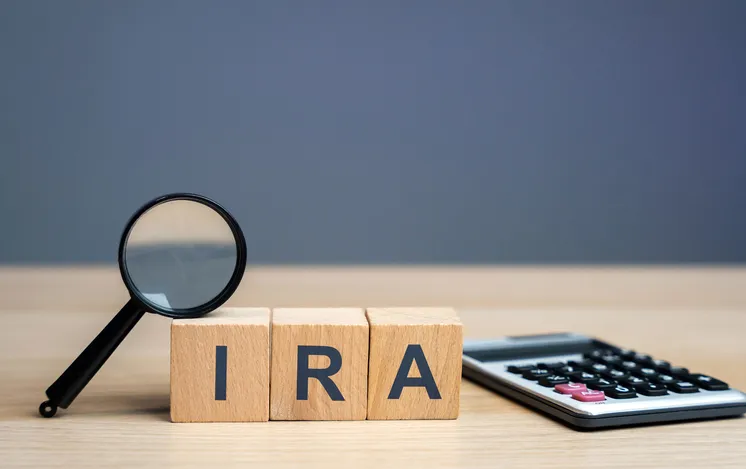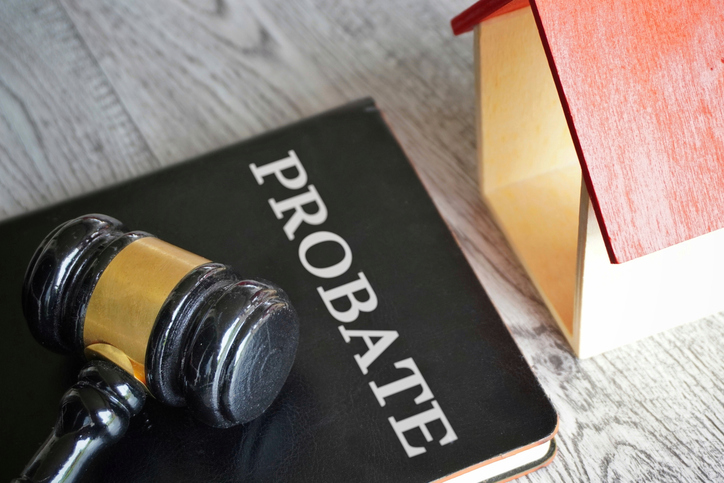Individual retirement accounts (IRAs) are popular retirement savings vehicles that offer tax advantages, but do IRAs go through probate? Unlike many other assets that you own, IRAs typically bypass the probate process entirely—provided you properly designate your beneficiaries. This distinction can save your loved ones significant time, money and stress during an already difficult period.
A financial advisor can help you ensure your IRA is set up to avoid probate in the future.
How Probate Works
Probate usually starts when someone—either the named executor or another interested individual—submits a petition to the court. They do this with the probate court in the county where the deceased person lived. This petition requests that the court officially recognize the death, accept the will as valid and appoint the executor to administer the estate. The court will then issue letters testamentary that give the executor legal authority to act on behalf of the estate.
Once appointed, the executor must identify and catalog all assets owned by the deceased. This includes real estate, bank accounts, investments, vehicles and personal belongings. The executor may need to hire professional appraisers to determine the fair market value of certain assets. They eventually file this inventory with the court so it can serve as a baseline for the estate’s value.
The executor must notify creditors of the death, usually through newspaper announcements and direct communication. Creditors typically have a limited time period to make claims against the estate. Before the executor can make any distributions to beneficiaries, they must pay valid debts from the estate assets. These may include outstanding loans, credit card balances, medical bills and funeral expenses.
After the estate covers all debts and taxes, the executor can distribute the remaining assets, according to the will. If there is no will, state intestacy laws determine who receives the assets. The executor must document all distributions and file a final accounting with the court. Once the court approves this accounting, the probate process is complete and the executor is free from their duties.
When IRAs Might Go Through Probate

A common reason for probate is when the account owner fails to name a beneficiary or the designation becomes invalid. If you do not specify who should receive your retirement assets after your death, your IRA will likely become part of your probate estate. This may also be the case if your named beneficiaries have predeceased you and you fail to update the beneficiary designation.
You can easily avoid this situation by regularly reviewing and updating your beneficiary designations. This is especially important after major life events, such as marriages, divorces or deaths in the family.
Sometimes, account owners intentionally or accidentally name their estate as the beneficiary of their IRA. When this happens, the IRA must go through probate because the estate itself needs court supervision to distribute assets. It also subjects the assets to potential creditor claims against your estate.
Even with proper beneficiary designations, an IRA might enter probate if your named beneficiary disclaims or refuses the inheritance. When a beneficiary disclaims their interest and no contingent beneficiary is named, the assets may revert to your estate. This situation underscores the importance of naming both primary and contingent beneficiaries for all retirement accounts.
Sometimes, beneficiary designations face legal challenges that push the IRA into probate. This may occur if there are questions about the account owner’s mental capacity when making designations, allegations of undue influence or disputes among potential heirs. These situations often require court intervention to resolve. This effectively places the IRA assets under probate jurisdiction until the matter is settled.
How to Prevent Retirement Accounts From Going Through Probate
Ensuring your retirement accounts bypass probate can save your beneficiaries time, money and stress during an emotionally challenging period. Probate can be lengthy and costly, but fortunately, there are several effective strategies to keep retirement accounts out of probate.
Designate Beneficiaries Properly
Naming specific beneficiaries on your retirement accounts is perhaps the simplest way to avoid probate. When you designate beneficiaries on your 401(k), IRA, or other retirement plans, assets transfer directly to your named beneficiaries upon your death. Remember to review and update these designations regularly, especially after major life events.
Use a Transfer on Death (TOD) Designation
For investment accounts that are not traditional retirement vehicles, a transfer on death (TOD) designation is useful. It allows assets to pass directly to named beneficiaries without probate. This simple form, available from most financial institutions, ensures a smooth transition of assets while maintaining your control over the accounts during your lifetime.
Establish a Revocable Living Trust
Creating a trust and transferring your retirement accounts to it can be an effective way to avoid probate. With a properly structured revocable living trust, your assets can pass to beneficiaries according to your wishes without court involvement. This option provides additional control over how and when your beneficiaries receive the funds.
What To Do If Your Inherited IRA Goes Into the Probate Process
If you discover an inherited IRA is going to probate, your first step should be contacting the financial institution holding the account. Request all necessary documentation regarding the account’s status and beneficiary information. The custodian can confirm whether the account truly lacks beneficiary designations or if there is simply an administrative error in need of correcting before probate proceedings advance.
Prepare to provide documentation proving your relationship to the deceased and your potential claim to the IRA assets. This typically includes the death certificate, your identification and any relevant estate planning documents. These can include wills or trusts that may mention the IRA. Organizing these documents early can significantly streamline the process once probate begins.
Navigating what to do if your inherited IRA goes into the probate process requires specialized knowledge. An estate attorney with experience in retirement accounts can provide guidance on your specific situation. They can help you understand state-specific probate laws, potential tax implications and strategies to potentially expedite the process.
Bottom Line

Understanding whether IRAs go through probate is essential for effective estate planning. Generally, IRAs with properly designated beneficiaries bypass the probate process entirely, allowing for a smoother transfer of assets to your loved ones. This direct beneficiary designation is one of the key advantages of retirement accounts in estate planning. However, if you fail to name beneficiaries or if your named beneficiaries die before you without contingent beneficiaries in place, your IRA assets could end up in probate.
Estate Planning Tips
- A financial advisor can help ensure your retirement accounts align with your broader estate planning goals. Finding a financial advisor doesn’t have to be hard. SmartAsset’s free tool matches you with vetted financial advisors who serve your area, and you can have a free introductory call with your advisor matches to decide which one you feel is right for you. If you’re ready to find an advisor who can help you achieve your financial goals, get started now.
- Even with the right beneficiaries in place, accessing online financial accounts can be a hurdle. Include instructions in your estate plan about how your executor or loved ones can access your digital account credentials, particularly for online-only financial institutions or custodians.
Photo credit: ©iStock.com/mohd izzuan, ©iStock.com/Zolak, ©iStock.com/Andrii Yalanskyi
